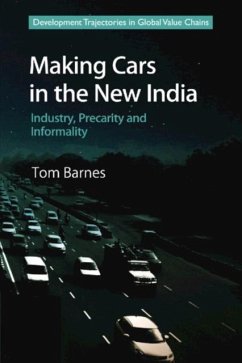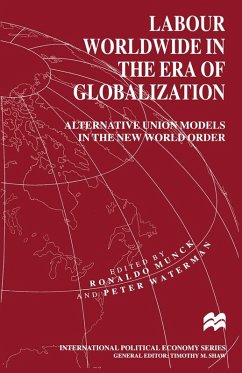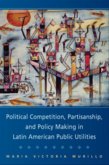Auto manufacturing holds the promise of employing many young Indians in relatively well-paid, high-skill employment, but this promise is threatened by the industry's role as a site of immense conflict in recent years. This book asks: how do we explain this conflict? What are the implications of conflict for the ambitious economic development agendas of Indian governments? Based upon extensive field research in India's National Capital Region, this book is the first to focus on labour relations in the Indian auto industry. It proposes the theory that conflict in the auto industry has been driven by twin forces: first, the intersection of global networks of auto manufacturing with regional social structures which have always relied on informal and precariously-employed workers; and, second, the systematic displacement of securely-employed 'regular workers' by waves of precariously-employed 'de facto informal workers'.
Dieser Download kann aus rechtlichen Gründen nur mit Rechnungsadresse in A, B, BG, CY, CZ, D, DK, EW, E, FIN, F, GR, HR, H, IRL, I, LT, L, LR, M, NL, PL, P, R, S, SLO, SK ausgeliefert werden.









